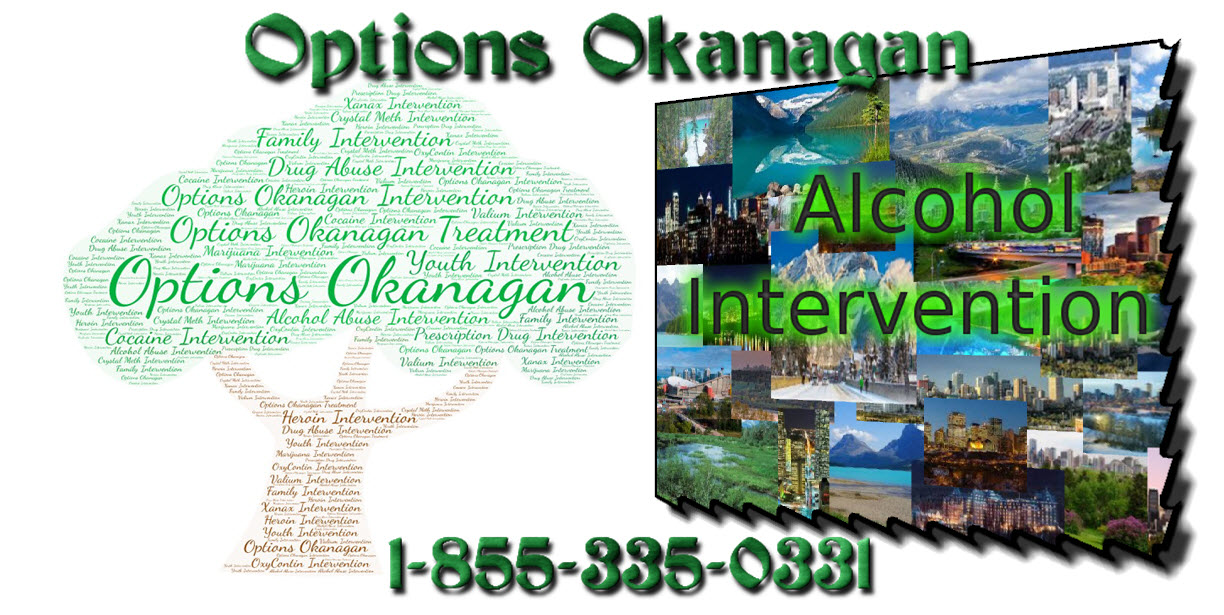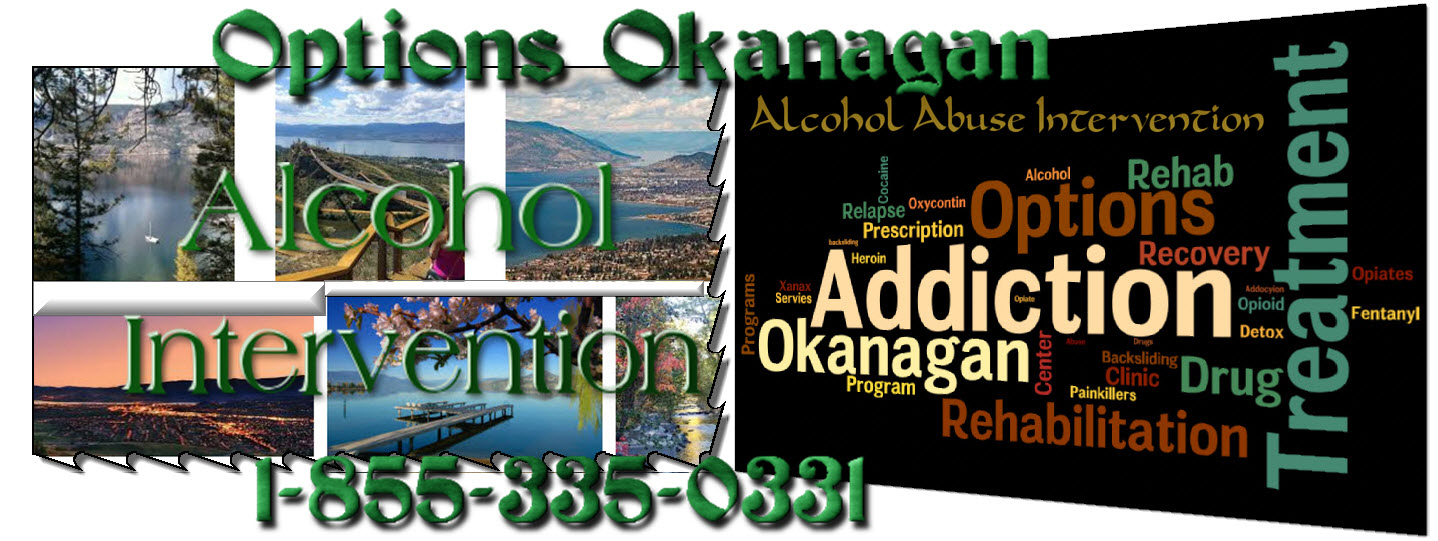The four signs that an alcohol intervention is necessary – Alcohol interventions and rehab treatment plans in Alberta and British Columbia Canada – Drug Rehabs in Calgary, Edmonton, Red Deer and other parts of Alberta by Options Okanagan Treatment Center in Kelowna, British Columbia treating alcohol, heroin, fentanyl, opiate, drug addiction and recovery.
Alcohol Interventions in Alberta and BC
The change in character and habits of a loved one that abuses alcohol is hard to go unnoticed or to ignore. The addiction affects not only the user but also the close family friends. It is a state of affairs that often has the family and friends wondering what to do to help their loved one overcome the problem.
Most families will opt to hold an intervention; it may seem like a drastic measure, but it surely is the best way of helping the loved one that is chained by alcoholism. Know when to take such a step is a matter of understanding the four signs that your loved one is an alcoholic and it is time for the family to act and save the addicted individual.
1. Uncontrollable Or Compulsive Alcohol Consumption
When the use of alcohol becomes compulsive, it is a sign of addiction, and the person cannot fight the urge to drink. They cannot control how much they drink, when, and how often. As a result, the user will:
a) Wake up to a drink (alcohol) in the morning.
b) May bring the alcohol to work, the church, or family gatherings, or even drink in the car.
c) Cannot stop drinking once they start.
d) Attempts to cut back, and bears little to no fruit.
Any of these traits are an indication that the alcoholism is beyond the user’s control. As such, an intervention is the best help you can offer your loved one.
2. Alcohol-Related Health Issues Develop
Recent disease control and prevention statistics on alcohol addiction show that alcoholism is the leading cause of chronic liver disease, kidney problems. Alcohol addiction is also linked to the development of cancer problems as well as cardiovascular complications. Most of these health issues, if not treated along with alcohol addiction, can lead to death.
Heavy drinkers start to register a decline in their health, and the rate is often drastic and warranting immediate intervention. The user will often have abnormal test results whenever they go for a medical checkup. Such issues are a trove of information that the family can use when taking an intervention since they are an indication that their alcohol consumption has reached dangerous levels.
3. The Safety Of Relatives And Friends Is At Risk
Not only are alcoholics a danger to themselves, but also those close to them. For instance, the user may opt to drive while drinking or when intoxicated. They quickly get in physical altercations because they are easily irritable when drunk. They often make poor choices because the alcohol impedes their judgment. As such, feuds with the family and friends are fueled by the alcohol and the arguments can lead to injuries. Overall, such actions can see the alcohol addict get jailed or face hefty fines. For instance, drunk driving is illegal primarily because it puts other road users, including the drunk driver, at risk of injuries or death.
4. Brief Talks Fail To Work
Many families touched by alcohol addiction attempt to solve the problem by holding frequent, informal talks. They might discuss the behaviors they’ve seen, and express that they wish the loved one would get help, and sometimes families even feel compelled to research treatment facilities before the talk, so they can outline how the treatment will progress. If families have held a number of these talks and the person still won’t enroll in treatment, it’s time to get serious and stage a planned intervention.
Counting the many times that the talks about addiction have yielded little; the person will not seek treatment or any help. It is in such a point that a planned intervention is the only resolve to ensuring the person gets the help they need and are free from the disease of alcoholism.
What You Should Do
Any of the above issues should be a wake-up call that you need to act on behalf of your loved one even when they do not want to accept that they have an alcohol problem and should seek help.
Holding an intervention for your loved one who is an alcoholic is not easy. The feeling of being unsure and frightened about the outcomes of the discussion is understandable. And that is why it is wise to consider the expertise of an interventionist to help plan. The interventionist can also opt to be present in the room during the talk and will step up and take charge if things take a turn for the worse. Call Options Okanagan at 1-855-335-0331 if you need guidance or assistance. We have the various experienced professionals who can be there every step of the way.
Drug Intervention Treatment Options :: Professional Alcohol Intervention In Alberta
Options Okanagan Drug And Alcohol Treatment Centers in Kelowna, Salmon Arm and Vancouver, British Columbia – Men and Women are recovering and healing from Alcohol and Drug Abuse at our treatment center here in the Okanagan right now.
Our unique and distinctive drug treatment program allows men and women to come in from Calgary as well as Edmonton as we offer airport pickup.
Numerous clients come to us from Calgary and Edmonton and other locations in Alberta and even other provinces for Opiate addiction treatment, meth drug treatment, many other drug and alcohol addictions for rehabilitation because of the uniqueness of our treatment center.
Our Alcohol Treatment Location:
Options Okanagan Alcohol Treatment Centers
551 Sherrydale Crescent, Kelowna, British Columbia, V1V 2E6
Toll Free Phone Number : 1-855-335-0331



